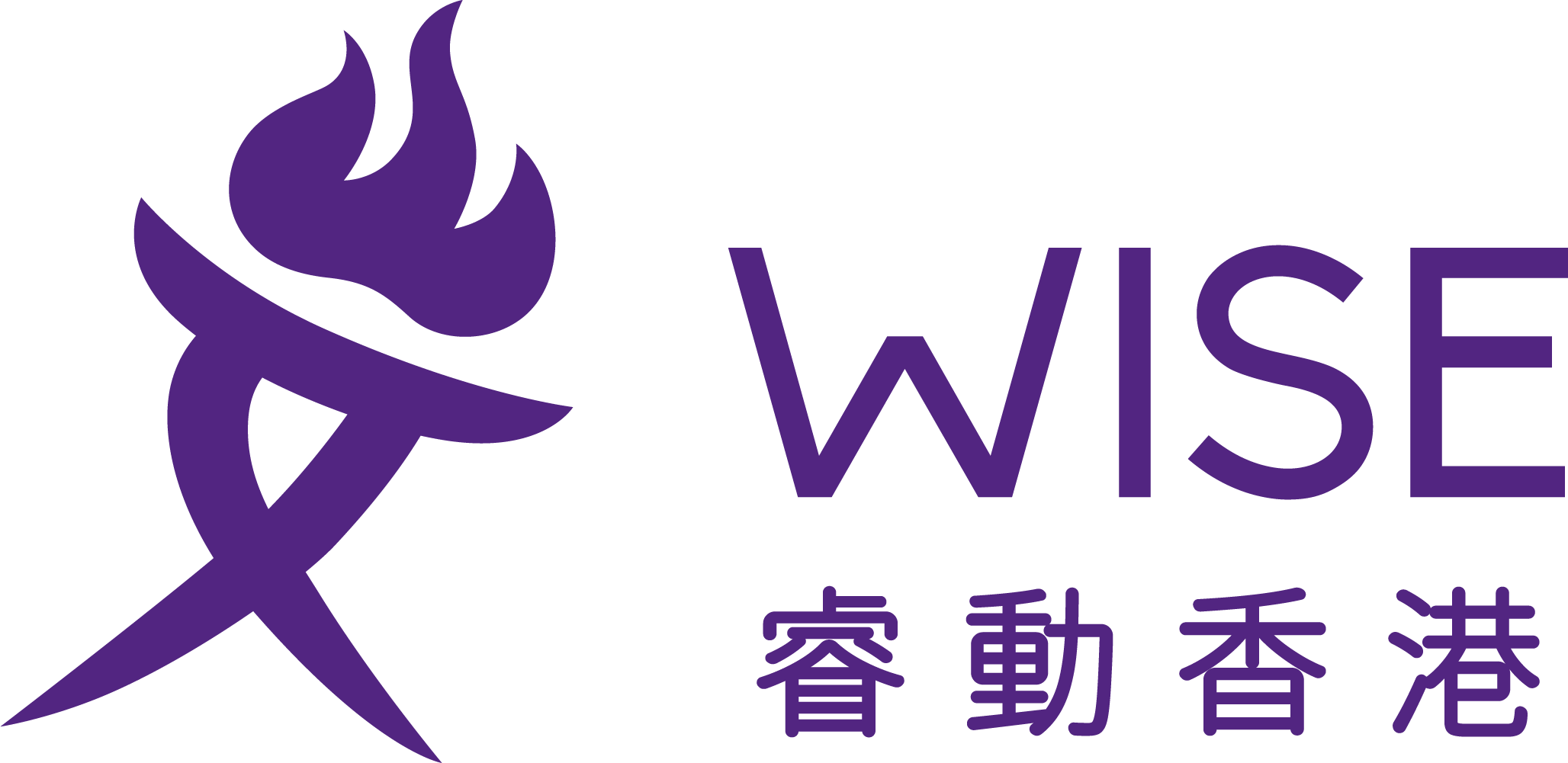Lisi Moore – Ultimate Frisbee Coach, Mother and Physiotherapist – on the importance of developing women’s leadership skills through sports
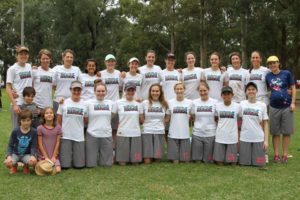
A few months ago, our teammate Alicia, was selected to be part of the inaugural Asian Oceanic All Stars Tour, a program developed to build the profiles of female Ultimate Frisbee athletes in the region, and to connect the region’s best and most promising athletes. This program is initiated and spearheaded by Lisi Moore, an athlete, coach, mentor, mother and physiotherapist based in Australia.
We caught up with Lisi to ask her about the meaning of starting such a program and why it matters.
To find out more about the program, please follow the Facebook page at: https://www.facebook.com/pg/AOAllstars
The program is also fundraising to support the costs of the program. You can donate here: https://www.gofundme.com/asianoceanic-all-stars
This interview differs from our usual interviews where we spo(r)tlight female athletes in Hong Kong, but the candor and passion behind Lisi’s dedication to building girls’ leadership skills through sports is difficult not to share!
(This interview has been edited and condensed for length).
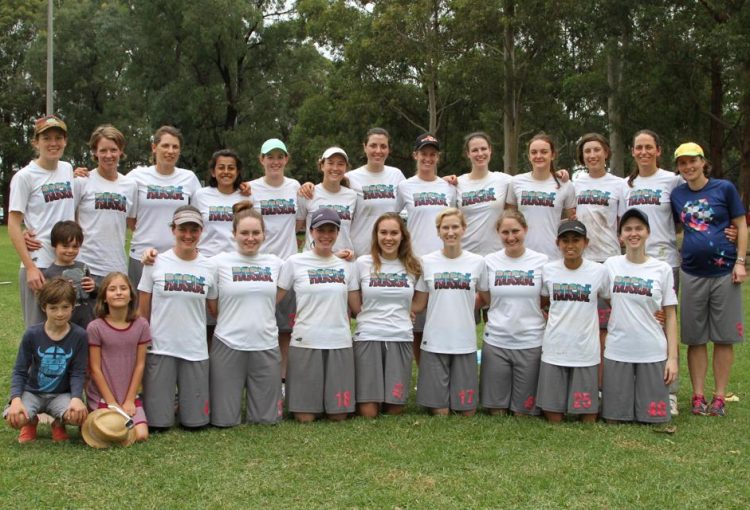
Lisi Moore (in blue) with her team, a few days before she gave birth to her son.What led you to put together this Asian Oceanic All Stars tour?
The inspiration came after the Euro Stars Tour in 2017, which came off the back of the All-Star Ultimate Frisbee tour in the US. I felt it was a great idea to showcase incredible female athletes and give them the opportunities they may not normally get to play against the best teams, to play big matches in front of big crowds, and to get experience and exposure.
My past experiences as a player spurred this thinking that we needed to find more ways to help our players develop high level skills, especially in preparation for major tournaments such as World Championships. As an Australian National team player, one thing I have observed is that we talk a lot about the fact that when we compete in major tournaments, a lot of our players don’t have big game experience. Coupled with this was the sense that we had a lot of talented female athletes in the region and not many opportunities to showcase their skills and push their limits. To grow the sport we needed ways to inspire the next generation of women, a strong platform from which to grow the women’s competition (skills, leadership, coaching expertise) and more opportunities for women to play women’s ultimate, which is sadly still lagging behind men’s and mixed.
In my experience coaching women and young ladies, there is an inherent lack of confidence and fear of failure which holds so many back from reaching their potential or putting themselves out there. In Australia we have done quite a lot of work about building mental skills and yet the struggles are still evident; and I know it’s not just unique to us. This led me to question why? And whilst I don’t have all the answers I certainly felt after lengthy contemplation that we needed to band together to support each other and talk about the challenges and seek out challenges that we know could help us grow. I wanted to contribute to empowering women both in ultimate and through ultimate further by initiation a combined effort – something outside of our own borders – an international initiative that encompassed the strengths of our region and called for support from our friends in the USA.
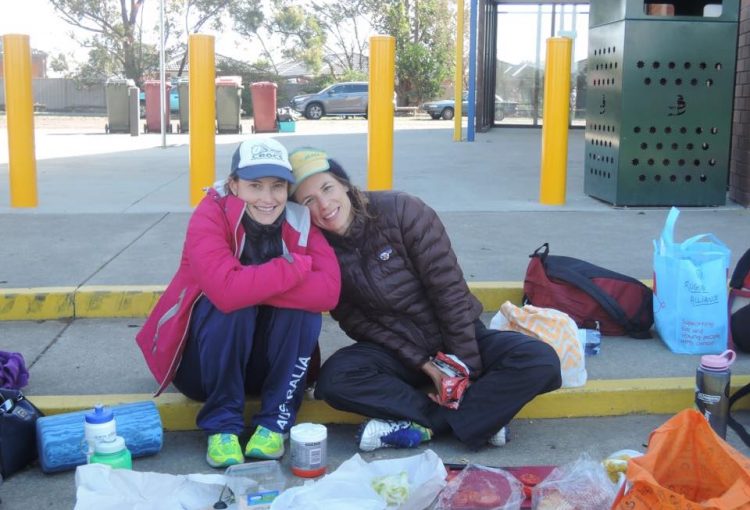
Lisi Moore – on the leftFrom wanting to do such a program to actually putting it together and getting it launched, what did you need to do?
At first I wasn’t sure if I had the time! I needed help and I needed to know that it was something that other people wanted as well. I started contacting all the women’s club teams in Australia to gather interest and see if anyone was keen to be involved. I was upfront about saying that I had little time, but I had ideas, and I think I knew how to get it done; I just needed people to help. The interest was there, and from this formed a small working party from Australia and NZ who started moving ahead with the project.
Our first step was to contact the national bodies that we knew of in the region and said, “look this is our idea, what do you think? Is this something that you want? Something you can be involved in organising? Do you have resources that can be put towards the program? Who else should we contact in your country?” We got good responses, everyone who got back to us was excited! In summary they basically said “yeah this is awesome, we haven’t got resources to put into it, but go for it!”
The more we started talking about it, and thinking about the possibility and looking at what was needed, it evolved from simply being an All-Stars team to take to the US, to turning this into more of an ongoing program designed to benefit all women in the area. A top down development approach. We wanted to give these girls the opportunity to develop leadership skills, connect and exchange ideas with each other, learn from each other, talk about issues that are affecting them in their region, see where the common ground is and see if we can work together to share resources.
So we changed the way to refer to it from the All Stars Tour to the Athlete Development Program. We decided this is something we want to invest long term in, to have monetary resources, to have people appointed permanently to certain roles within the program to help run it so that we could be supporting people with initiatives after the tour.
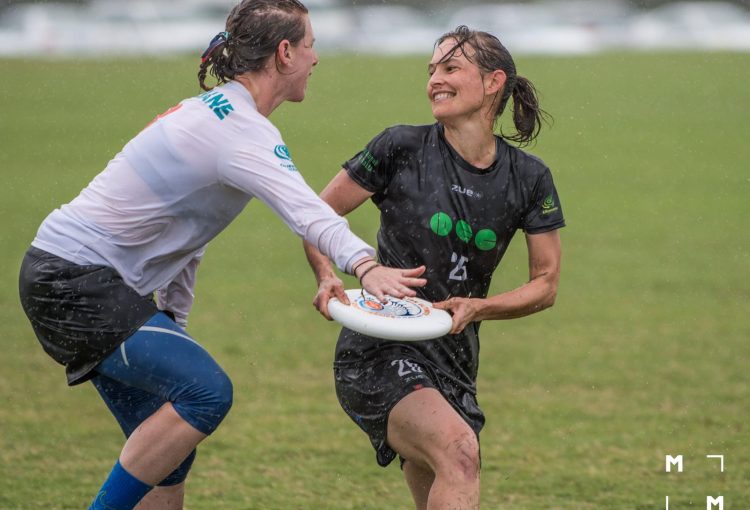
Photo: Mark Milne Photography https://www.facebook.com/MarkMilnePhotography/Why is the coaching of leadership skills and mental strength to women and girls important to you? Why is this important to you?
My first thought is that I am a better mother because I am a mentally strong athlete! Anna Rogacki, a coach in Australia who is both a sports coach and life coach, has been hugely influential in my life as both a coach and a friend since she first coached with during the 2013 world games campaign. I have learned a lot from her about building awareness of my thoughts and feelings, their impact on me and becoming a master of my responses. To me, this is an essential part of being a successful athlete and influences your ability to train and prepare effectively for competition. I think for women in particular, it is also hugely empowering to become a master of our lives.
I’ve been able to apply these skills to my work as a physiotherapist. I work primarily with children and athletes, and with both groups I do sometimes feel like a coach to them and to their parents! It also plays out at home when I am helping my kids learn how to deal with their own emotions and responses; observing what they play victim to and what they are able to master and helping them build their own awareness around this.
I sometimes think a great place for us to start building resilience is often on the sporting field. In so much of our lives we have to deal with things beyond our control. When you look at it from a life context it can all look very complex; when you look at it from the sporting field, it’s very easy to see what you are and are not in control of. And if you can start to understand that — even as a child — and learn to focus on what you can control and put your effort into that, and learn to deal with disappointment and failures, everything can be simplified in that context. As you learn to do this, you can start to apply that in life too.
I feel like when we go on the sporting field, it’s just you with the controllables and the uncontrollable. That is a very free and empowering place to be, where we can simply go and do our best and be proud of what we have done, knowing we have put our best effort into all the controllable aspects.
I have coached a lot of young girls in schools and in our U18 to U22 programs. Sometimes it’s disheartening to see girls taking themselves out, lacking confidence to try, sitting on the side lines — there’s always some reason — while the boys are just out there, running around, going nuts and laughing at their own mistakes or if the Frisbee has gone in a funny direction. It’s also so rewarding when you can see a girl has thrown a beautiful backhand, and bringing her up in front of the class, saying, “if you want to have a good example of how to do that, watch XXX here” and see that inch growth in height when all of a sudden she realises she can do this.
We have spent much energy with our U22 girls to help them understand their own reactions and responses to things and getting them to understand the power of positive thinking and how much that can change an outcome, because it’s not a natural thing for our girls to be thinking positively. If we can train their brains like it is a muscle that needs to be trained, then thinking positively starts to become a more natural mind-set, which then flows into other aspects of their life. If we can start this early, it is hugely powerful.
We need to get girls and women to think of themselves as leaders, and not just that, but also to recognise who they are, what sort of person they are, what their strengths are and how those strengths can be utilised in a leadership space. Because there are different kinds of leaders and it’s about how we work together and how we learn from each other. So for me, it’s also about from a young age, helping girls start to identify who they are, what their strengths are, how that can be utilised and helping them understand their external motivations and working through that, to sometimes push them a little bit. If you get that right, at the end of it you get this really confident girl who is able to step up and understand what their strengths are which can help them transition into a space where they are thinking about, “this is my strength” and how I can use them.
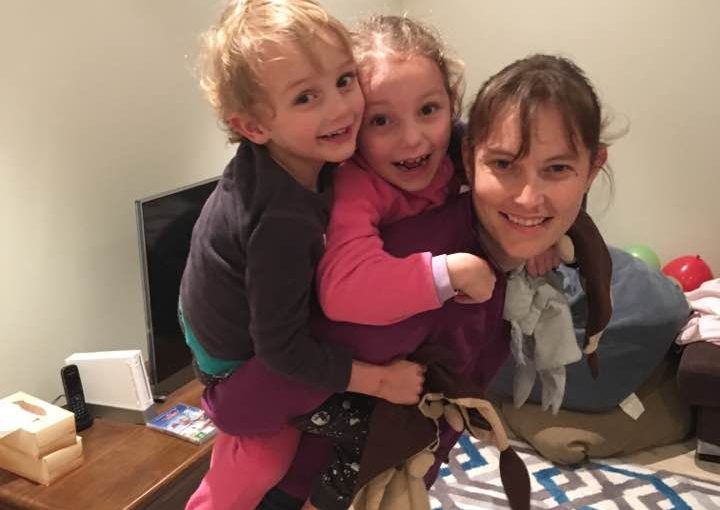
Lisi Moore with her two childrenWhy has sport been important for you?
What is interesting about sport that is different to the corporate world — and which is quite key when it comes to thinking about how to empowering women — is that in sport you are expected to fail before you succeed. You’re expected to keep trying and trying until you get it right, and failing is a huge part of learning. But then when you go in the corporate world, or any job context, there is much less latitude for failure. I think there is a lot of pressure to succeed constantly. And that can be very intimidating. So I think it’s very important in any setting to help people find that balance between having success, but also feeling like it is okay to fail.
One of the reasons why I love ultimate Frisbee is because we have a strong community, and it’s such a privilege to be part of a group of like-minded individuals.
And specifically as it relates to how playing sports help me as a mother, I think it’s helped me learn to be very calm while under pressure and also developing resilience; to me these are incredibly invaluable. Resilience is a skill that develops like everything else. You go to the gym and you have to challenge yourself so that you can get better. And that is the same when I am playing sports. You really need to experience some hardship in order to develop resilience.
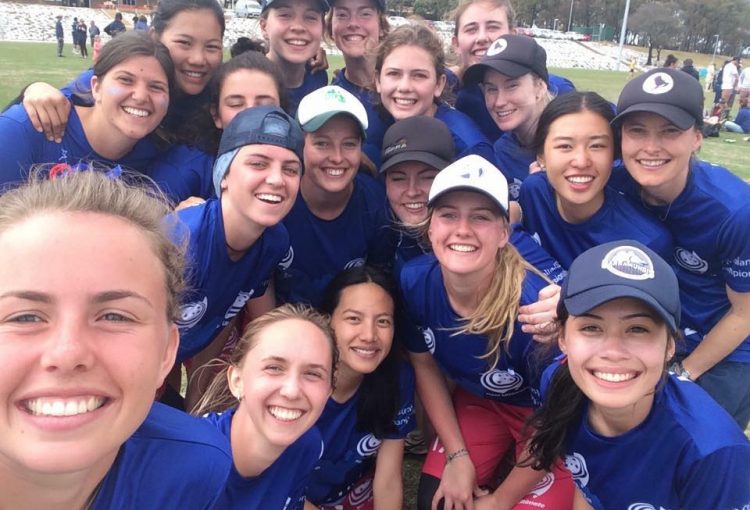
Lisi Moore with her team**********
About the AOAS Tour:
The program has been developed to build the profile of female athletes in our region and to connect our best and most promising athletes. We aim to give them the opportunity to learn from and share with each other and other top athletes and coaches in our sport.
We want women to gain experiences that will help them grow as athletes and leaders. We want them to take this knowledge and experience back to their local regions to help develop players and programs there.
The Vision:
We will inspire a generation of young women and develop connections and knowledge to take us forward in our mission to assist the growth of women in ultimate in our region and around the world.
To find out more about the program, please follow the Facebook page at: https://www.facebook.com/pg/AOAllstars
The program is also fundraising to support the costs of the program. You can donate here: https://www.gofundme.com/asianoceanic-all-stars
